Well, Pardners and hopefully, my Fellow-Protesting Peaceniks,
It’s been another 2 weeks that I’ve been grappling with The Big Change in my life, and… I’m still not quite ready to write about it publicly.
Soon, though, I promise. I’m working up the courage to do it, as painful and unpredictable as it may have been. After all, that’s the plight of the autobiographical artist, n’est-ce pas?
Otherwise, it’d be hanging over me like a nebulous cloud, and I’d end up having to tell you each… one at a time. And that would probably take… the rest of my life!
So, in lieu of that, here’s another older post from “Trules Rules”, my former WordPress blog (born 2002), that I hope will capture some of your Baby Boom thoughts, ideals, and memories, as hazy as they may be.
And for you younger kin, hopefully it will give you…. just a taste of when…
The times, they were ‘a changin’
Dylan didn’t attend the Woodstock Festival, although he was actually living with his family in Woodstock near “Big Pink” at the time, in seclusion and supposedly still recovering from his notorious July 29, 1966 motorcycle accident. Nor did Joni Mitchell show up, although she would later write the beautiful folk-rock “anthem” that eternally memorialized the Festival. But… Jimi Hendrix, Janis Joplin (both long deceased and members of the infamous “27 Club”), The Who, Crosby, Stills, Nash & Young, Jefferson Airplane, Santana, The Grateful Dead, Creedence Clearwater Revival, and Joe Cocker - were all there.
At the precise moment in counter-cultural history when peace, love, sex, drugs, and rock ‘n roll… all coincided… at least, in our most-probably, youthful and altered- consciousness… hearts and minds!
“August 14, 2019
August 15-18 will be the 50th anniversary of the 1969 Woodstock Festival, officially named “An Aquarian Exposition: 3 Days of Peace and Music,” created by the four-headed, at-cross-purposed, producing team of Michael Lang, Artie Kornfield, John P. Roberts, and Joel Rosenman.
Nevertheless, despite all its pre-production difficulties, its mounds of personality discord, and its fields of endless garbage that the iconic festival paid to have hauled away, “Woodstock” also earned its reputation as the era-defining event of the 1960s counter culture, the moment in time when music, culture, and history all came together to be remembered… forever.
I recently listened to The Road to Woodstock on Audible, the story of the Festival’s origin, planning, and final “explosion” in Bethel, New York in the summer of 1969, as told by Michael Lang, the primary visionary and producer of the festival, a 24-year-old impresario who programmed all the now-legendary bands, and who was, at the time, also the free-wheelin’, anti-capitalist who let the half million hordes of weekend hippies into the Festival “for free” after the grounds of Max Yasgur’s farm were entirely blocked to traffic and… beautifully and hopelessly mired in mellifluous mud.
The festival officially started on August 15th with line producer Lang practically pushing gun-shy Richie Havens out on stage in front of the first hundreds of thousands of stoned Woodstock revelers on that muddy, mid-Friday afternoon, with Havens fiercely rising to the occasion by strumming himself into a spontaneously-composed, newly-born and soon-legendary song, appropriately entitled “Freedom.”
The rest of that first afternoon’s folk set included 8 other acts, including Tim Hardin singing “Reason to Believe,” my own personal favorite, along with the likes of Ravi Shankar, Arlo Guthrie (of “Alice’s Restaurant” fame), and Folk Queen, Joan Baez, ending the first night somewhere around 4 a.m. with her own version of the 1960s protest song, “We Shall Overcome.”
Saturday’s program mercifully began at 12:30 pm, and it included a 22-year-old Carlos Santana playing for his first big audience ever, John Sebastian (of the Lovin’ Spoonful), The Incredible String Band, Canned Heat, The Grateful Dead (somehow delivering their worst set ever!), and John Fogerty of Credence Clearwater Revival who rocked the house with “Born on the Bayou,” “Proud Mary,” and a towering finale of “Suzie Q.”
Of course, any normal rock concert would have ended right there—but not this one! At 2 a.m., a recently solo-ed Janis Joplin followed Credence with a somewhat-shaky, under-rehearsed new band, but she was fortunately followed by Sly and the Family Stone, whose psychedelic dance-soul music hit the peak of Woodstock frenzy at almost 4 a.m., just before sunrise. Sly was followed by the Who, whose Peter Townshend, who afterward never had a good thing to say about the entire Woodstock experience, and finally, Grace Slick and The Jefferson Airplane closed the 2nd day sometime around 9 a.m. on Sunday morning.
After sleeping—or recovering—or taking more drugs all day on Sunday August 17, the 3rd day of music began at 6:30 pm and exploded out of the gate with the almost never-heard-or-seen-before, one of a kind, Joe Cocker. It was electric. Joe was followed by psychedelic rock icon, Country Joe and the Fish, Bob Dylan’s “Basement Tapes” backup, The Band, albino guitar wizard Johnny Winter, Al Kooper’s Blood, Sweat & Tears, and then Crosby, Stills, Nash & Young, who played 2 separate sets, electric and acoustic, from 3-4 in the morning.
After a Paul Butterfield Chicago blues set, and the pace-changing doo-op of Sha Na Na, it was Jimi Hendrix who finally closed the Festival on Monday morning August 18, with maybe “only” 40,000 hardcore revelers remaining, but who were nonetheless, righteously rewarded with the Festival-defining version of Hendrix’s soaring and exploding “Star Bangled Banner”… tailing off to a festival-closing “Hey, Joe” at a few minutes after 11 a.m. Monday morning…. after which began the slow slog home, the hitching of rides, and the cleanup of Yasgur’s and his adjoining neighbors’ farms… for miles of eternity all around.
My only personal regret about Woodstock, as the single-worded, but soon-mythical event, came to be known, was that…I… didn’t make it. And that - my 5-year-younger sister - did!
You see, by the time August, 1969 had rolled around, I had already sworn off music festivals. I had been to Newport in 1965, Monterey Pop in 1967, and Atlantic City in the summer of 1969… just before Woodstock. I chose it, Atlantic City, because Joni Mitchell was going to be at Atlantic City and not at Woodstock. And even at my 22-year-old counter-cultural best, I could no longer afford, or stomach, another overblown, crowd-crushing rock ‘n roll festival. Unfortunately and regretfully for me, I made the wrong call, both missing the culture-defining event of my generation… and forever giving a trump card to my never-forgetting, far straighter, younger sister!
The only salvation I can claim Woodstock-wise is my sneaking into an early screening of the 1970 Michael Wadleigh-directed film Woodstock, in Madison, Wisconsin, grabbing a random seat so as not to get nabbed by the movie house’s security, and finding myself sitting next to a long-haired, tank-top-wearing, 19-year-old, milk-fed Midwestern brunette, with whom, by the end of the movie, I was deeply in love. “Trish” took me immediately back to her apartment, where we made muddy, Woodstockian love for over a week. At the time, I was “living” in my 1964 Pontiac Tempest named “Steppenwolf” for a 6-month “on-the-road,” cross-country misadventure. And by the time “Wolfie” and I finally rolled, blurry-eyed, out of Madison, I had bequeathed Trish my black onyx and diamond heirloom ring, a symbol of my parents’ love, given to me by them on my sixteenth birthday.
But more directly to my point… what interests me today about Woodstock is not only the opportunity to re-experience the festival’s music and nostalgia from the distance of 50 years, but also, more poignantly, to answer the question:
What happened to ‘us’?
To all us hippies, artists, protesters and peaceniks? To all of us freak-flag-waving counter-culturists who so passionately believed in changing the world? In civil and human rights, in a universal anti-war movement, in free, non-monogamous love, in getting high, in anti-materialism, in non-consumerism, non-conformism, in sex, drugs, and rock ‘n roll?
Was I, and my entire “Woodstock Generation” of counter-culturists, simply and historically—wrong? Deluded? Too idealistic? That’s the condemnatory verdict concluded by conservative columnists like George Will. (See my letter to him in the Huffington Post.)
We Baby Boomers are now officially pronounced by most media as “the failed generation”… the first generation of parents to leave their children a financial, political, and cultural legacy worse than their own. Worse than our own! To have left our children angry and adrift.
How?
Why?
It seems absolutely logical on some level. We had “our heads” in the clouds, our consciousness into mind-altering drugs, our ears into rock ‘n’ roll, our beliefs into protest and “changing the world.” We didn’t believe in money. Nor in Wall Street. Nor in planning for our futures. We believed in “being here now”. In “improvising”. We didn’t believe in getting married, having 2.2 children like our parents, in building careers, in saving for the future. So naturally, that kind of Mad, “What, me worry?” generational philosophy would only have obvious, predictable consequences:
I don’t own a house. Most Americans live paycheck to paycheck, have little to nothing saved for retirement. They have no nest egg for their children. They’re caught in an inter-generational war about anti-government, anti-immigration, anti-“socialism”… about making “America Great Again”… all mixed in with greed, disappointment, patriotism, anger, and extremism… on both sides of the aisle.
It hurts the hell out of me. It contradicts everything I ever believed in. Still believe in. Even if… only a few of us were actual “hippies”… “artists”… or “ counter-culturists”… we’re all now mutually condemned as a generation.
Sure, hippies became yuppies and parents, bankers, and brokers. They had to.
We are no longer “stardust.” No longer “golden.” No longer must “we get ourselves back to the Garrr…den.” (Joni Mitchell’s apocryphal lyrics perhaps ring shallow to some these days.) While to others, like admittedly, to yours Trulesly, those same lyrics still help me find “a reason to believe.”
Because to those of us who did believe, way back in 1969, and who basically still do believe, in 2019, to those of us who still try to uphold the basic semblance of a world built on social justice, honesty, fairness, human rights, community, and dare I say, love, we resent that our beliefs, our philosophy, our credos, our very essence have been reduced to the over-simplified image of long dirty hair, tied-dyed t-shirts, civil rights protest, Black power, conscientious objection to the Vietnam War, burning draft cards, Bob Dylan, the Beatles, transcendental meditation, Eastern philosophy, personal discovery, self-expression, self-indulgence, sex, drugs, and torn blue jeans, long before they became $300 fashion statements at online stores around our cyber-connected 21st century planet.
All of which leads to another pressing question:
“Can we still believe?”
I’d like to say an uncompromising YES! Yes, we can still believe! While still acknowledging the truth in the words of our critics, I overwhelmingly want to say… YES!
So what if the 50th anniversary Woodstock concert had to be canceled—by the same, now 74-year-old Michael Lang, who, depending on your perspective, either still has a “reason to believe” or, as others would say, is perhaps still trying to exploit the visionary “success” he had as a lucky, star-crossed 24-year-old.
I hold nothing against Michael Lang. He had a dream. And he realized that dream: “Three Days of Peace and Music” in mid-August, 1969. On Max Yasgur’s farm. 50 years ago.
I didn’t make it. But I got to experience it vicariously, through the power of rock ‘n roll and the alchemy of movie magic.
And for some stubborn reason, I still keep that “reason to believe.” I believe that my generation was at the root of positive change in our society. Our protests were not in vain. Our voices were not silenced. There were positive changes in civil rights. In the rights of women. Later in the rights of LGBTQ. In the rights of the poor. Our protests did help stop and end the Vietnam War. President Lyndon Johnson, who once voted against every civil rights bill from 1939 – 1964, had the courage and vision to pass the Civil Rights Act of 1964, along with Medicare, and the Food Stamp Act, Clean Rivers and Child Safety laws, Better Housing and Gun Control, and many, many more bills signed into law by the Congresses of Johnson’s “Great Society.”
I think that our generation, the so-called “failed Baby Boomers”, deserve some credit for all of that positive change, while simultaneously. we have to accept the responsibility of our perhaps overly, pie-in-the-sky, idealism.
Remember? John Lennon asked us to “imagine.”
Imagine there’s no countries
It isn’t hard to do
Nothing to kill or die for
And no religion too
Imagine all the people living life in peace, youYou may say I’m a dreamer
But I’m not the only one
I hope some day you’ll join us
And the world will be as one
But as we all know, John Lennon was shot to death by Mark David Chapman in front of his adopted home, the Dakota, on Central Park West in New York City, on December 8, 1980. And maybe, on that day, if not on another early December day in 1969, just weeks after the beautiful and transcendent Woodstock Festival, at the Altamont Speedway in northern California, when four people died, one stabbed to death, at a Rolling Stones concert documented in the Maysles Brothers’ shocking and brutal film, Gimme Shelter, maybe on one of those two days, if not another unremarkable day quite like it, maybe our far-reaching and diamond-starred idealism, as Joan Baez would sing years later, slowly and finally…. “turned to rust.”
I guess it ultimately comes down to your point of view: glass half-full or half-empty? How do YOU choose to see the 1960s? The Woodstock generation? As a failed one? Or as dreaming and aspiring one? As widely idealistic but falling short? Or as far-sighted but having lost sight of its foundational goals and ideals?
It’s certainly not that we Baby Boomers love our children any less than any previous generations. That we want to give them any less than we had ourselves. Opportunity. Length of life. Health care. Financial security. In the year 2019, we are certainly light years “ahead” of human beings who lived at any other time in human history. In pre-historic times. In Medieval times. At any time during the 15th-20th centuries. Because undoubtedly, in the 21st century, we arguably live at the pinnacle of human evolution. Technology. Medicine. Science. Travel. Connection. So many things. It’s just that my concern that, as a member of the “Woodstock Generation,” we may have accomplished all this at the expense of our humanity.
And we must remember it!
Because although we have new issues and causes to fight for: global warming, starvation, poverty around the world, wars in Afghanistan, Syria, Yemen, Iraq, so many others, the “clash of civilizations” between Islam and the West, getting universal health care in America (my own personal cause celebre)… we must “still keep up the fight.”
We must still, as CSN&Y sang,
“Carry On!”
Not give up “hope.” Not fall prey to the current diatribes of our political and religious leaders.
Woodstock lives! That’s what I say!
What about you?
Social justice! Humanity!
Half empty? Or half full?
Peace, love, sex, drugs, and rock ‘n roll - forever!
xo
Trules
If you enjoyed this post, or any previous ones, please LIKE IT (by clicking the Heart), and LEAVE A COMMENT. It helps build an enthusiastic and interactive readership…. which I greatly appreciate!
If you have any friends who you think might enjoy Santa Fe Substack, PLEASE SHARE IT WITH THEM.
ALSO, IF YOU FIND A TYPO (a casualty of being your own editor!), please let me know so I can fix it.
Please also CHECK OUT “TRULES RULES on SUBSTACK” with over 100 posts and re-posts of “rants, raves, reports, and embarrassments, plus points of view & top-rated travel podcasts - along with some common sense”.
Thanks so much!
To read more of Trules’ travel tales, GO TO my “e-travels with e. trules” blog
Or to listen to my travel PODCAST, GO HERE
Visit my personal blog “Trules Rules” HERE
Or go to my HOMEPAGE
My Twitter (X) : Fxxk Twitter





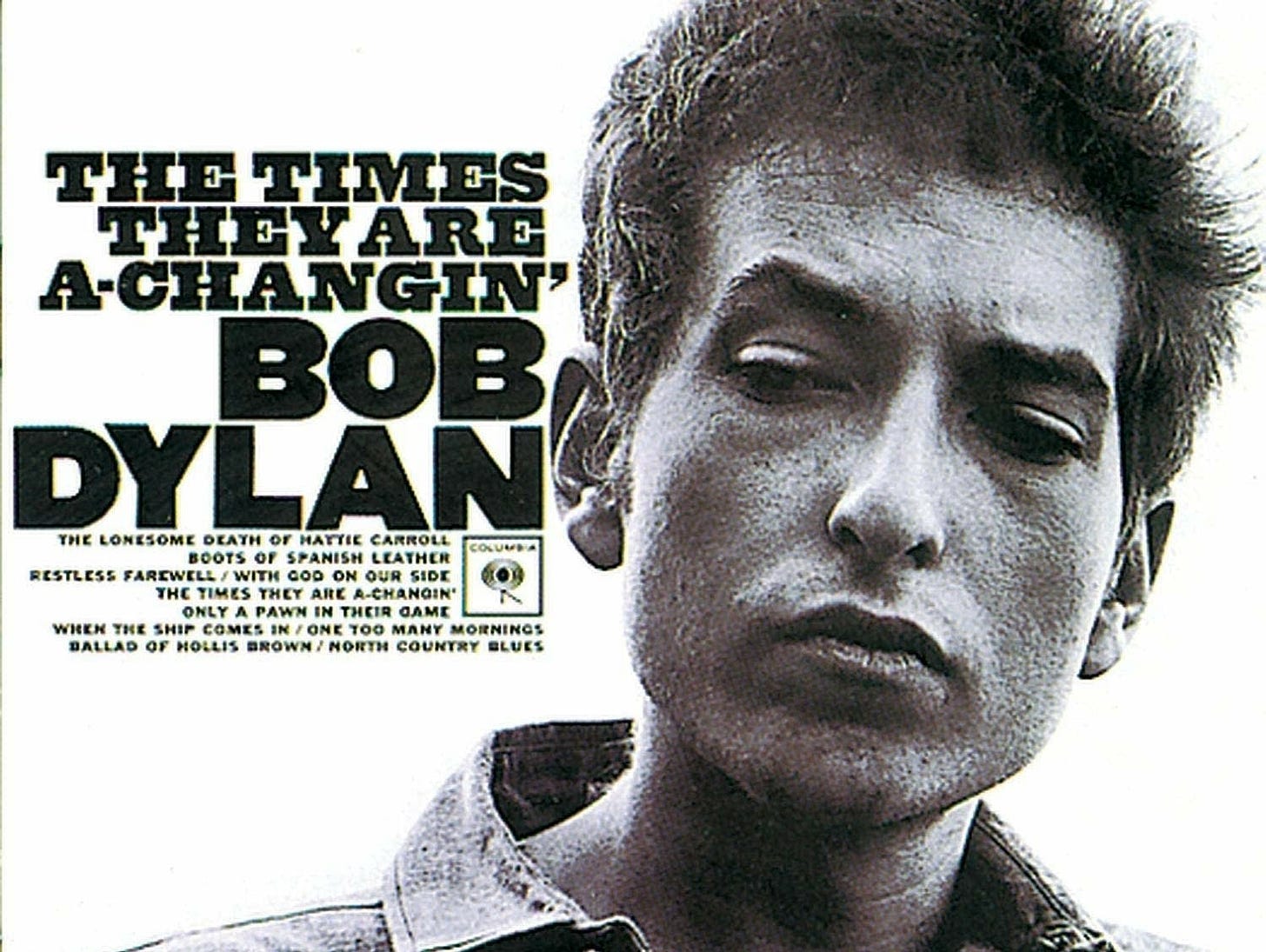
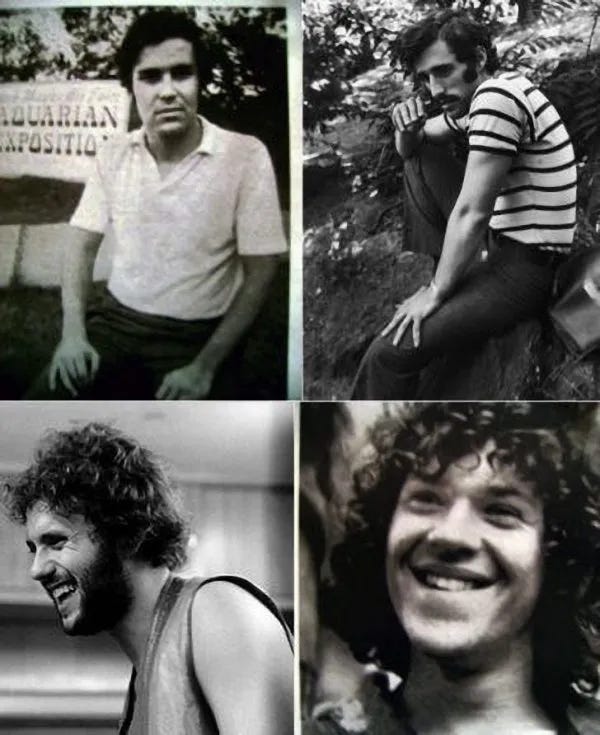


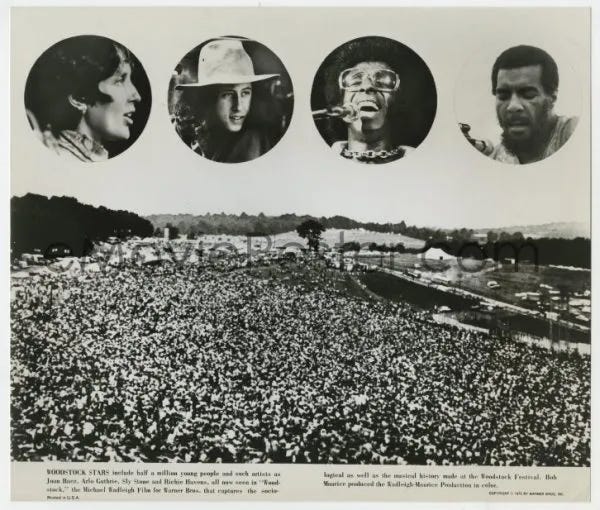
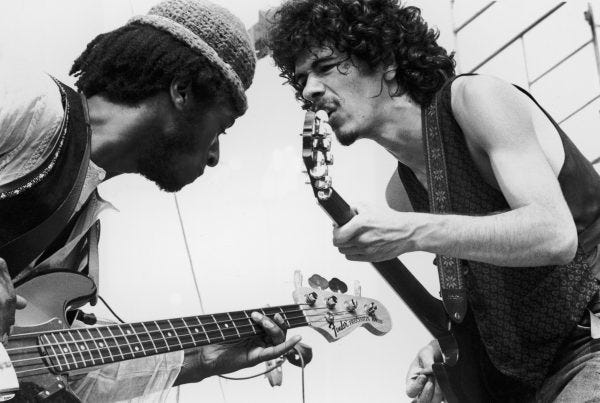


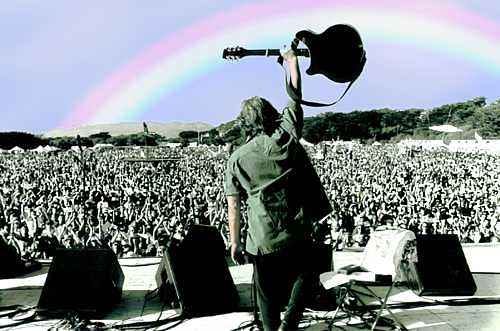
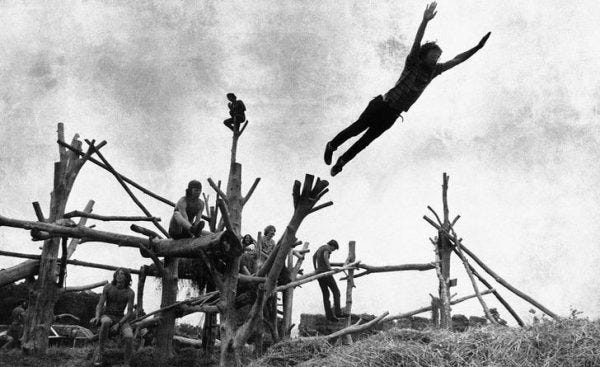

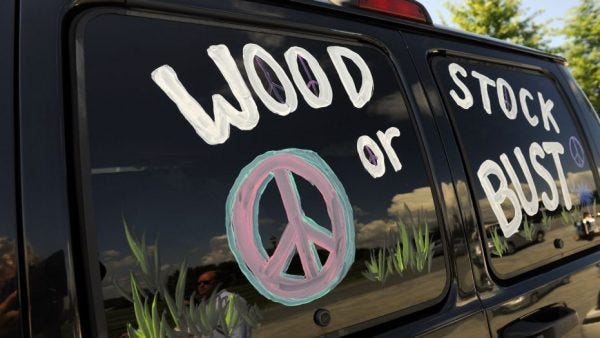

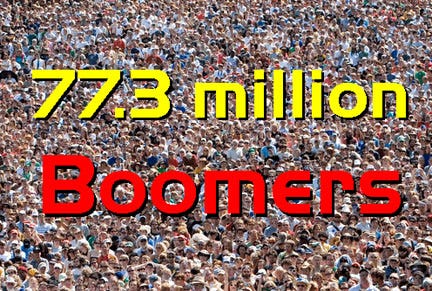
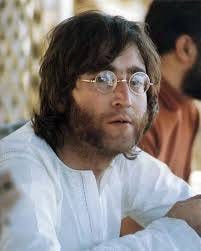
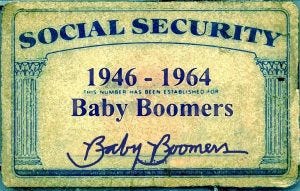

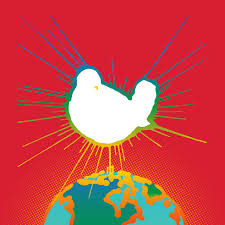
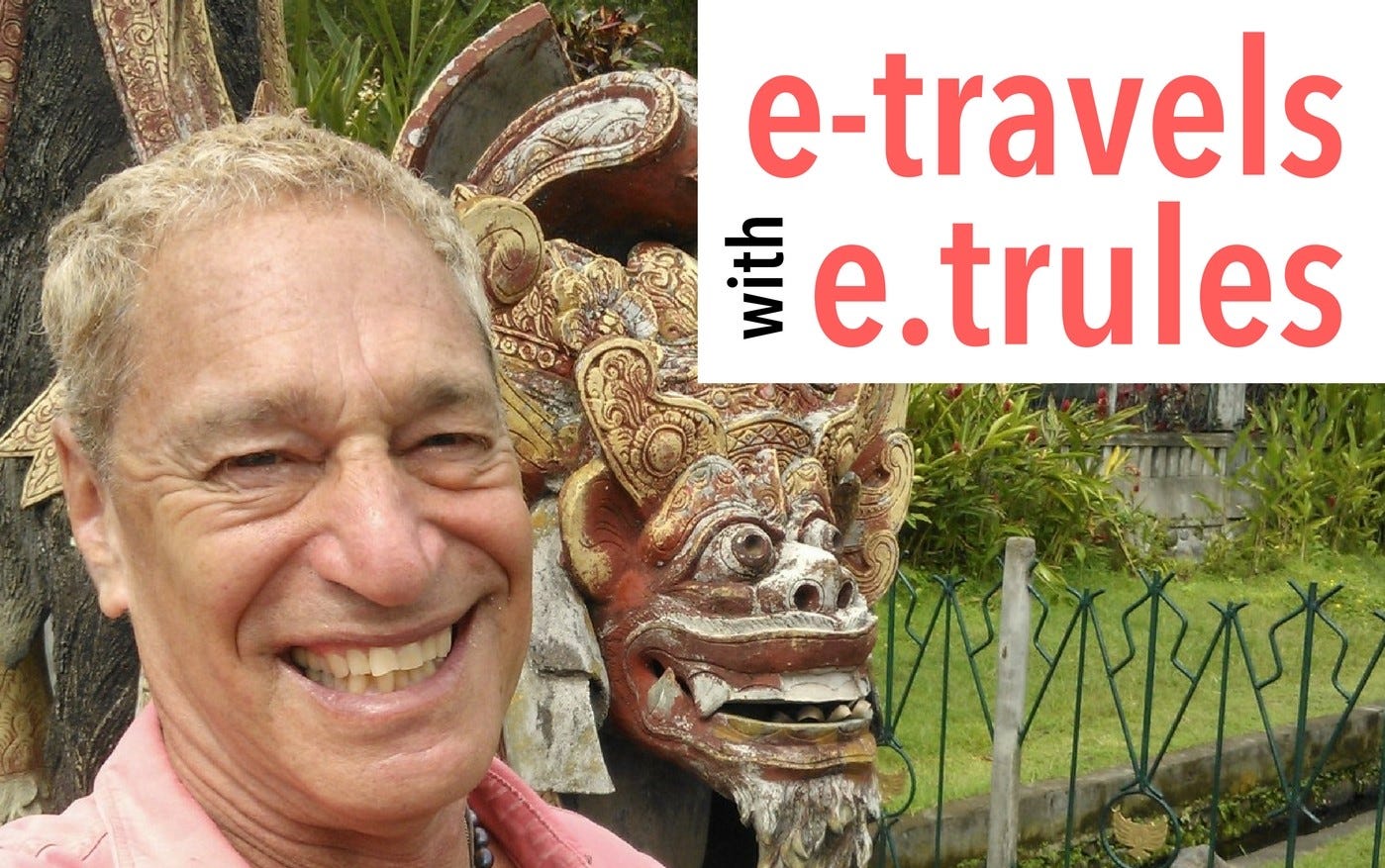
One of Trules best stories. We are very fortunate to have his personal, experience based insights into the current complexities of Political Economy.
Interesting peace (pun intended). Enjoyed reading it. I love much of the music of Woodstock although I was too young to attend. Born in the early 60s, I guess I’m not that kind of 60s product.
Religion has been the best part of my life and I think it’s the biggest thing our world is missing today. At least that’s what I think about mine, having never been a believer of another one. I acknowledge there are many religions, large and small that don’t teach respect for others.
I subscribe to monogamy, commandments, stability, thrift, saving for the future, higher power, structure, hard work, mutual respect, stable families, etc. The Woodstock generation tried to legitimize illegitimacy, but that legitimacy is no more real than Oz to me. Would we have the Woodstock music I love without the other mud? Maybe, maybe not. But I would trade the music for a god-fearing society any day. The one line I always choked on in Lennon’s Imagine was imagining no religion. It’s actually unimaginable to me, because if you reject traditional religion, that secularism and selfism becomes your religion. And that is the most destructive kind. Political parties are also some people’s religion.
And today, I’d argue the most regressive, repressive, destructive, and intolerant people are sometimes the most identified as progressive. Not always, of course. Anyway, thanks for sharing. Your writing invokes introspection, which is valuable.